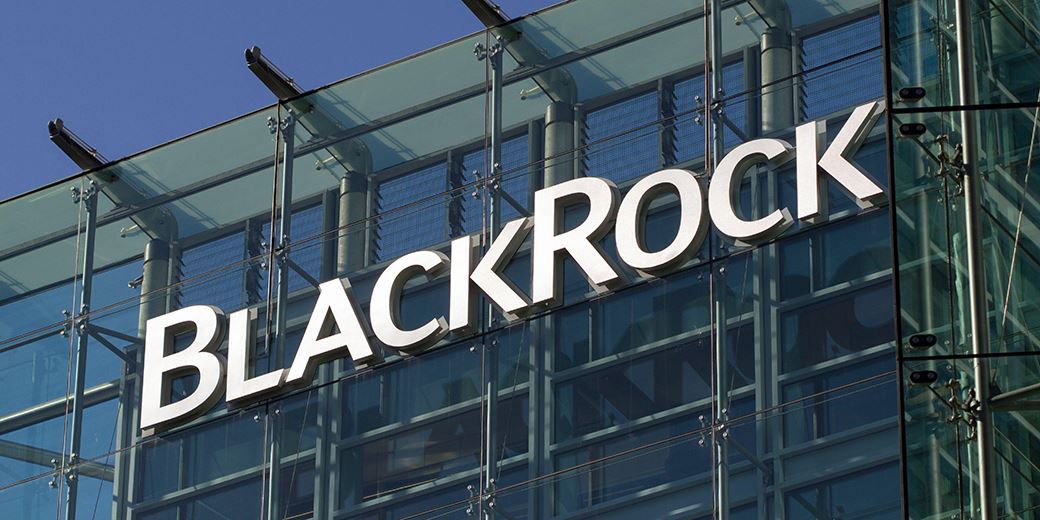BlackRock Becomes Third-Largest Bitcoin Holder With Almost 350,000 BTC
21.08.2024 8:00 2 min. read Alexander Stefanov
BlackRock has rapidly expanded its Bitcoin holdings, now owning close to 350,000 BTC, making it the third-largest holder globally, behind only Satoshi Nakamoto and Binance, according to blockchain data.
This significant accumulation comes as BlackRock strengthens its foothold in the cryptocurrency market, driven by the success of its Bitcoin-focused ETFs and increased institutional interest. The firm’s change in approach is notable, especially given that BlackRock’s CEO, Larry Fink, once openly criticized Bitcoin as a speculative asset. Over the years, his views have shifted, and he now regards Bitcoin as an important international asset with transformative potential.
The iShares Bitcoin Trust (IBIT), launched by BlackRock earlier this year, has been a key factor in the firm’s growing Bitcoin reserves. Institutional investors have flocked to the fund, pushing BlackRock’s BTC holdings to nearly 350,000. For comparison, only Satoshi Nakamoto’s estimated 1.1 million BTC and Binance’s 550,000 BTC holdings surpass this figure.
Bloomberg’s ETF analyst, Eric Balchunas, pointed out that U.S. ETFs could soon surpass Satoshi’s holdings, with BlackRock on track to become the largest Bitcoin holder by next year.
This rise comes as Grayscale, once a leader in Bitcoin holdings, has faced challenges, including investor withdrawals due to its high fees. Meanwhile, BlackRock’s success has encouraged other traditional financial institutions like Goldman Sachs and Capula Management to explore similar investments.
However, the increasing presence of large financial players in the cryptocurrency space has sparked debate. Some within the crypto community argue that this trend runs counter to Bitcoin’s original goal of decentralization, raising concerns about institutional control over the market.
-
1
Elon Musk Unveils His Own ‘America Party,’ Signals Pro-Bitcoin Political Shift
07.07.2025 11:40 2 min. read -
2
Bitcoin Blasts Past $121,000 as Institutions Fuel Rally—Will Altcoins Follow?
14.07.2025 8:15 2 min. read -
3
Bitcoin: What to Expect After Hitting a New All-time High
10.07.2025 14:00 2 min. read -
4
Peter Brandt Issues Cautious Bitcoin Warning Despite Bullish Positioning
10.07.2025 20:00 2 min. read -
5
Vanguard Now Owns 8% of Michael Saylor’s Strategy, Despite Calling BTC ‘Worthless’
15.07.2025 17:09 2 min. read
Global Money Flow Rising: Bitcoin Price Mirrors Every Move
Bitcoin is once again mirroring global liquidity trends—and that could have major implications in the days ahead.
What is The Market Mood Right Now? A Look at Crypto Sentiment And Signals
The crypto market is showing signs of cautious optimism. While prices remain elevated, sentiment indicators and trading activity suggest investors are stepping back to reassess risks rather than diving in further.
What Price Bitcoin Could Reach If ETF Demand Grows, According to Citi
Citigroup analysts say the key to Bitcoin’s future isn’t mining cycles or halving math—it’s ETF inflows.
Is Bitcoin’s Summer Slowdown a Buying Opportunity?
Bitcoin may be entering a typical summer correction phase, according to a July 25 report by crypto financial services firm Matrixport.
-
1
Elon Musk Unveils His Own ‘America Party,’ Signals Pro-Bitcoin Political Shift
07.07.2025 11:40 2 min. read -
2
Bitcoin Blasts Past $121,000 as Institutions Fuel Rally—Will Altcoins Follow?
14.07.2025 8:15 2 min. read -
3
Bitcoin: What to Expect After Hitting a New All-time High
10.07.2025 14:00 2 min. read -
4
Peter Brandt Issues Cautious Bitcoin Warning Despite Bullish Positioning
10.07.2025 20:00 2 min. read -
5
Vanguard Now Owns 8% of Michael Saylor’s Strategy, Despite Calling BTC ‘Worthless’
15.07.2025 17:09 2 min. read

